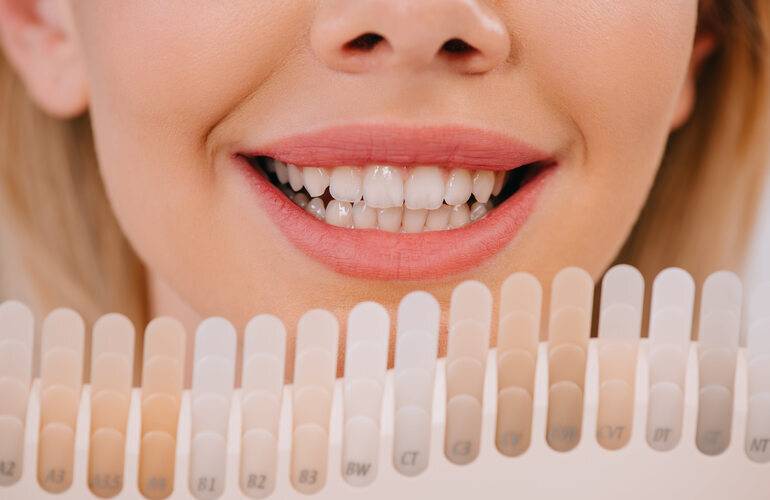A bright, white smile is often associated with good oral health and confidence. If you are wondering how to whiten teeth effectively, there are several methods to consider, ranging from natural remedies to professional treatments. As a dental professional, I will guide you through the best options to achieve a whiter smile safely and effectively.
Professional teeth whitening options
In-office whitening treatments
Professional in-office whitening treatments are one of the most effective ways to whiten teeth. These treatments use high-concentration bleaching agents and often incorporate light or laser technology to enhance results. At our clinic, we offer Opalescence whitening, a trusted and effective solution for professional teeth whitening.
At-home whitening kits from dentists
Dentist-supervised at-home kits are a convenient option. These kits include custom-made trays and professional-grade whitening gel, providing excellent results over a few weeks.
Laser teeth whitening
Laser teeth whitening is a quick and effective procedure that uses laser technology to activate the whitening agent applied to your teeth. This method provides immediate results but may be more expensive than other options.
Over-the-counter whitening products
Whitening toothpaste
Whitening toothpastes contain mild abrasives and chemical agents that help remove surface stains. While they are effective for minor discoloration, they do not provide the same results as professional treatments.
Whitening strips and gels
Whitening strips and gels are popular options that are easy to use. These products typically contain peroxide-based bleaching agents and can deliver noticeable results within a few weeks.
Whitening rinses
Whitening rinses help reduce surface stains and prevent new stains from forming. They are best used as a supplementary method alongside other whitening treatments.
Dietary and lifestyle changes for whiter teeth
Avoiding stain-causing foods and drinks
Certain foods and beverages, such as coffee, tea, red wine, and berries, can stain teeth. Using a straw when drinking beverages and rinsing your mouth with water afterward can help minimize staining.
Reducing sugar intake
Sugar contributes to plaque buildup and tooth decay, which can cause discoloration. Reducing sugar intake and maintaining a balanced diet can support oral health and keep your teeth white.
Quitting smoking
Smoking not only harms your overall health but also causes severe tooth staining. Quitting smoking can significantly improve the whiteness of your teeth and your overall oral health.
Maintaining oral hygiene for whiter teeth
Regular brushing and flossing
Brushing your teeth twice a day with a fluoride toothpaste and flossing daily helps remove plaque and prevent stains. An electric toothbrush can be more effective in cleaning hard-to-reach areas.
Using mouthwash effectively
Using an antibacterial mouthwash can help reduce plaque and prevent stains. Choose a mouthwash that is free of alcohol to avoid dry mouth.
Regular dental check-ups
Scheduling regular dental check-ups allows your dentist to detect and address any oral health issues early. Professional cleanings can remove surface stains that brushing alone cannot.
Risks and considerations of teeth whitening
Sensitivity issues
Teeth whitening treatments, especially those with peroxide, can cause temporary tooth sensitivity. Using desensitizing toothpaste before and after treatment can help minimize discomfort.
Potential gum irritation
Bleaching agents can irritate the gums if they come into contact with them for too long. Professional supervision and using custom trays can reduce the risk of irritation.
Enamel damage concerns
Overusing whitening products or using them incorrectly can damage the enamel, leading to increased sensitivity and a higher risk of cavities. Always follow the instructions and consult your dentist for safe whitening options.

Josaida Contreras is a Doctor of Dental Surgery and Endodontics specialist with nearly 20 years of experience. Educated in both Latin America and the U.S., she continues to expand her expertise through advanced training in implant dentistry.




